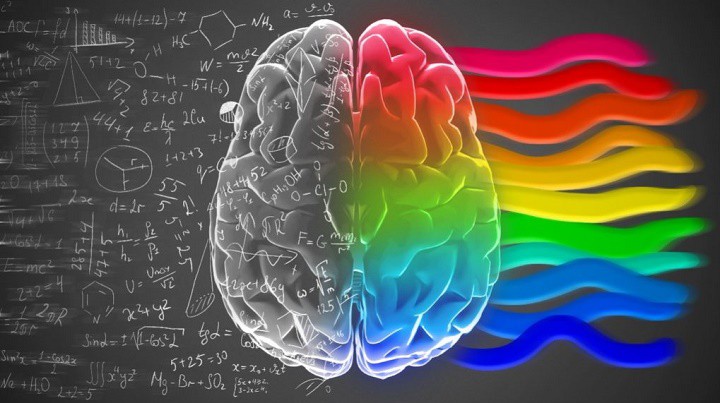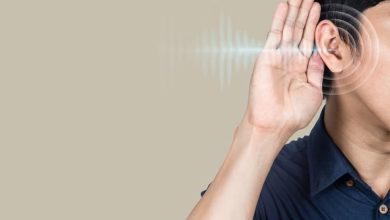What is intuition, and how is it strengthened?

Intuition is a powerful decision-making tool that allows us to react in the moment and arrive at a “gut” response that goes beyond our logic or learned answers. Therefore, with the help of intuition, we can make vital decisions. In the following, we will further explain intuition and examine it from a psychological point of view.
What is intuition?
Intuition is the inner feeling that arises when we instinctively know whether our work is right or wrong or when we recognize kindness or fear in the other person’s face. Intuition cannot be taught or explained because intuition is not logical.
Although intuition is quick and usually helpful, it is only sometimes entirely correct. The subconscious mind tries to recognize and process issues based on past experiences and best guesses and uses thought patterns. It seems impossible to know the nature of intuition because we cannot explain the thinking behind a sudden decision that we don’t even know where it came from.
Although intuition occurs in our daily lives, it is much more evident in professionals’ decision-making. Experts use years of experience in their subconscious to make quick and correct decisions.
Examples of intuition in real life
- A sense tells you what the best decision is, for example, who to hire or when to change your job.
- You have a special feeling about a situation or a person. For example, you know your child has a problem, or you can trust someone.
- When the phone rings, you know who is calling or sense what the other person is trying to say before you answer.
Usually, when we use such words and phrases, we are describing the experience of intuition:
- I feel;
- My heart tells me,
- Sixth sense;
- I immediately understood;
- An inner voice told me.
Healthcare researchers have found that experienced dentists rely on intuition when making complex and rapid decisions. These quick choices are based on years of stored knowledge and are often better than choices made with clear evidence and logical thinking.
Many well-known economic activists also say they make decisions based on intuition rather than rational and conscious thinking. For example, from the group of 36 CEOs, 85% of them admitted that intuition, in the form of rules of thumb, plays a fundamental role in their decision-making process.
Intuition in terms of psychology
By examining people’s decisions, we can interpret their behavior. However, even with the advancement of brain imaging facilities, we still cannot see the thought processes behind them. Psychology can’t say much about intuition because most of what happens in the brain is invisible, and trying to see it is like looking into a black box from the outside. Many scientists propose the dual-process theory. According to this theory, decision-making processes are divided into intuitive (experiential or implicit) and analytical (rational or conscious).
Hogarth, an English-American psychologist, says: “The essence of intuition or intuitive responses is that they are obtained with little apparent effort and usually without conscious awareness and require only a little conscious deliberation or do not need it at all.”
Seymour Epstein, a psychologist and former professor at the University of Massachusetts, also says, based on the unconscious processing of information: “Intuition is the feeling of knowing without being aware of how one knows.”
Intuition is also holistic; that is, it combines insights gained from various sources and often requires leaps in thinking based on limited information.
Processes involved in intuition
In the 1950s, Herbert Simon conducted research on the concept of bounded rationality. According to Simon, people often decide based on what seems good enough and reduce their cognitive load.
When faced with specific tasks, we often resort to heuristics or rules of thumb that help form intuitive judgments instead of finding complete and correct answers. Using the heuristic method is a standard and default approach for decision-making.
The recognition process, one of the essential evolved functions, plays a significant role in intuition. The recognition function is independent of the memory-related parts of the brain. It can persist even under the most challenging conditions with sufficient accuracy for practical purposes.
Intuition relies on the automaticity of the decision-making process. Usually, in newly learned tasks, we must consciously think about our every move or action. As a result of more practice and learning, this knowledge becomes automatic, and we no longer need conscious intervention to perform it.
Forward and backward inferences also play an essential role in intuition. With the help of the knowledge we have gained through experience, we intuitively predict where, for example, the ball will land or why the child has fallen, and we take the necessary actions. The vast knowledge we’ve acquired over time gives us real-world predictability, enabling us to act faster and better in situations we’ve encountered many times. Learning and remembering stored information (retrieval) is also significantly related to intuitive processes.
Intuition arises from the interaction of many distinct cognitive processes rather than a single operation. That is, the mental processes are combined to reach a quick and effective response when necessary.
Differences in intuition in men and women
Intuition is the ability to know without analytical reasoning. It bridges the gap between the conscious and unconscious parts of the mind. For example, when you can feel that there is a problem while the available evidence shows something else, or you predict a trend in the market before others, or you sense the existence of a problem in a transaction, you have used your intuition.
Scientists believe that intuition is formed on the right side of the brain. Corpus callosum is the connective white matter that connects the left and right hemispheres of the brain, and women’s corpus callosum is thicker than men’s. This thicker brain highway gives women better and faster access to each hemisphere. It integrates women’s inner emotions and feelings with the left hemisphere (the more logical part) in the decision-making process.
Women’s brains have extraordinary powers built for quick, intuitive decision-making. Psychologically, women are more in touch with their emotions and integrate their emotional assumptions or ideas about others with logic more than men. Because men’s corpus callosum is narrower, their thinking is more compartmentalized, and they move less between intuition and reason.
What is the importance of intuition?
Intuition reduces overall cognitive load and the ability to respond quickly while providing confidence in one’s knowledge and decision-making, although it may challenge analysis. Intuition helps us survive by providing quick answers that usually lead to appropriate and immediate action in response to a situation.
Although intuition is usually helpful, it may cause bias and prejudice in our decisions due to religion, culture, social, moral, and political environments. In these cases, we must moderate intuition with logical thinking to avoid prejudice. According to Hogarth, instinct can be learned explicitly. By changing the content and learning environment, we can achieve more correct intuitive judgments with less bias.
Tips for creating and enhancing intuition
1. Pay attention to your inner sense.
Activation of neurotransmitters (chemical messengers) in the gut causes nausea or nausea. Creating these feelings is not accidental; you should pay attention to them. According to scientific findings, the intestine has a complete network of neurotransmitters called the enteric nervous system.
2. A short break to meditate and ask a question in your mind
Every day, we must make decisions about different issues, which become more significant as we progress in our work or personal lives. Sometimes, we face situations where we must make crucial decisions quickly and with limited data. Calming the mind and framing the decision as a question in our mind can strengthen our intuition and guide us to the answer.
If it is impossible to close our eyes and meditate, taking a deep breath or a few moments away from the environment can help us make the best decision.
3. Pay attention to your energy.
How do you feel next to your colleague or friend? Are you tired or energetic? Using your intuition to know others can make you a more effective manager or negotiator.
To use intuition, keep these points in mind:
- Intuition is mainly based on experiences and things we know from the past. If our present or future situation is very different from the past, we should use intuition cautiously. Without logical analysis, any decision will be ineffective at best and dangerous at worst.
- When we have limited time (for example, when a boat is sinking), intuition can help us think quickly and focus. Still, when we have enough time to consider aspects (for instance, combating global warming), we must rely on rational and evidence-based analysis.
- Although intuition is the achievement of knowledge without depending on reason or inference, it differs from instinct. Because instinct is a standardized and direct response to stimuli that cannot be changed much. Instinct is innate and inherited, and as a result of millions of years of evolution, it has been institutionalized in our brain circuits.
- In many cultures, intuition is the basis for religious and spiritual experience. For example, no one can show God in a material form or describe the physical dimensions of prayer. Worship is an intuitive experience and a spiritual dialogue between a person and a being who considers him his God.
you say
Everyone has an intuitive understanding, but some people are better at it than others and have a stronger sixth sense. What is your experience? Have you ever done something based on your gut feeling and what your heart told you?







